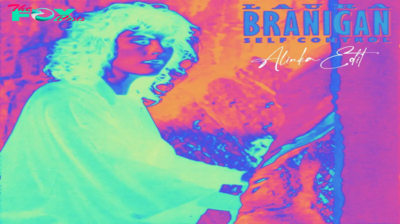Entertainment
AMERICAN THEATRE | Want You Have been Right here
Illustration by Matt Hanns Schroeter.
“It’s not nearly being invited to the occasion,” says Ava Xiao-Lin Rigelhaupt, Autistic Inventive Marketing consultant for the musical Learn how to Dance in Ohio. “It’s about being requested to bounce.” Primarily based on the 2015 documentary following disabled younger individuals in preparation for a spring formal, the present (which ran from final December by means of early February on Broadway) marked a milestone for the theatre neighborhood, because it centered disabled people not solely onstage however all through the method. This second, as celebratory because it was, jogged my memory simply how uncommon it has been for disabled audiences to actually be “requested to bounce.”
Because the Business struggles with viewers retention charges, many non-disabled American theatre leaders have failed to appreciate the extent to which inaccessibility impacts their public, roughly 27 p.c of whom dwell with incapacity, in accordance with the Facilities for Illness Management and Prevention. The nation’s first civil rights legislation for disabled residents, Part 504 of the Rehabilitation Act, was solely handed in 1973, guaranteeing human rights to disabled individuals and tying federal funds to non-discrimination. And whereas the People with Disabilities Act of 1990 laid out clearer and extra complete pointers for equitable alternative and societal participation, there weren’t precisely shining precedents for theatres to comply with.
“I got here into the sector when there wasn’t one, actually, as a result of we didn’t know what we have been doing. We have been making stuff up,” recalled Betty Siegel, the Kennedy Heart’s director on the Workplace of Accessibility and VSA (previously Very Particular Arts). Immediately Siegel and the Kennedy Heart host the annual nationwide Management Alternate in Arts and Incapacity (LEAD) convention, a much-needed gathering place for entry employees and disabled trailblazers. These embody people from the Broward Heart for the Performing Arts in Fort Lauderdale, Fla., the place I skilled my first accessible efficiency with my brother Miguel, who has hardly ever been welcomed into public areas.
Since their first sensory-friendly initiative in 2018, Broward Heart neighborhood engagement supervisor Gustavo Padrino and vice chairman of exterior affairs Jan Goodheart have invigorated South Florida’s entry applications, forging intensive partnerships with incapacity neighborhood organizations and subsidizing tickets costs for all sensory-friendly exhibits, in order that $60-$80 tickets flip into $10-$20 tickets. Their face-to-face relationships are what set them aside: They’ve educated a core front-of-house group so patrons will at all times encounter pleasant, acquainted faces.
This work is only one instance of non-disability-specific establishments partnering with disabled creatives and activists to innovate finest practices. The Kennedy Heart and Broward Heart depend on the experience of thinkers like Rigelhaupt, who’ve devoted tireless years of observe, knowledgeable by the incapacity justice motion.
Along with engaged on Broadway, Rigelhaupt writes for the PBS Youngsters present Carl the Collector and consults extensively. Dancer and efficiency artist Alison Kopit practices what she calls “entry dramaturgy” on exhibits like Darkish Disabled Tales, which was featured in the autumn situation of this journal. As an entry marketing consultant, Charlotte “Chuck” Gruman affords limitless instruments for corporations throughout the Chicagoland space, together with personally made tactile shows. And Riley Graygrove, a drama therapist, works with an appearing troupe of disabled adults at Work together Heart in Minnesota.
Just some stars in a much-needed constellation of oldsters devoted to creating arts extra radically accessible, Rigelhaupt, Kopit, Gruman, and Graygrove joined for a hybrid dialog, the modality recommended by author/activist Lydia X. Z. Brown. Partly held over Zoom and partly by way of written correspondence, the method itself provided us at American Theatre a glimpse of shifting expectations and paradigms to fulfill entry wants.
The transcript under has been edited for size and readability.
GABRIELA FURTADO COUTINHO: Are you able to all discuss the way you got here to the work of empowering disabled expertise in theatre?

ALISON KOPIT: I used to be engaged on a ebook mission with Simi Linton, and he or she launched me to Jordan Fein, who was directing Ryan Haddad’s Darkish Disabled Tales, offered by the Public Theater and produced by Bushwick Starr. They have been on the lookout for somebody to seek the advice of on entry in a artistic means, and it turned out that we had comparable aesthetics associated to entry—one thing that might be open for all audiences, artistic, and clear. Round that point, my disabled dancer collaborator Maggie Bridger was engaged on artistic entry for her personal piece in Chicago. We had been speaking about how this work of integrating entry on each stage and making entry central to meaning-making seems like dramaturgical work. I proposed the title “entry dramaturg.”
CHUCK GRUMAN: I grew up in Southeast Asia and got here to the USA once I was about 14 to go to a specialised boarding college for arts, Interlochen Arts Academy, which was a beautiful expertise, however I discovered that entry wants in the USA versus in Singapore have been taken very in another way, particularly in Educational settings. I by no means had any points as a toddler requesting entry. I went from having many assets to out of the blue not having any. So I began working actually exhausting to create sensory-friendly performances with theatres as a sensory-friendly designer. I even have been turning my focus to creating tactile shows, set fashions, and audio-described performances.
RILEY GRAYGROVE: I got here into this twofold. I’m disabled and located that theatre clicked rather well with my mind. I used to be navigating my new diagnoses on the age of 16 and determining how my physique labored after an harm, and I had three superb associates rising up who have been all terminally ailing. As their illnesses progressed they usually have been now not in a position to stroll, feed themselves, or converse, I seen that alternatives for them have been getting smaller and smaller. I knew at 17 that I wished to fi nd a means to herald extra disabled individuals. So I pursued drama remedy; I studied below Sally Bailey. Her strategy, “Barrier-Free Theatre,” is all about centering developmentally disabled people, their voices, and the tales they wish to inform.

AVA XIAO-LIN RIGELHAUPT: I used to be identified on the autism spectrum at 18 years outdated. This new analysis helped reply a number of questions my mother and I had, and it led me to higher perceive myself and discover helps. Nonetheless, this era was difficult. It added to my already complicated intersectional identification: Chinese language, trans racial adoptee with a Jewish single mother. The analysis pressured me to query the whole lot I believed I knew about myself, and wrestle with this new neuro-diverse identification. I’ve at all times been a theatre child, loving appearing, writing, simply telling tales! Artists typically are extra accepting of quirky individuals and wish to hear tips on how to do issues in another way. As a Chinese language girl, I used to be already within the push for numerous tales. My very first foray into accessible theatre was sensory-friendly.
CHUCK: I’d like to ask Alison a query. In your entry dramaturgy, one thing you’re innovating, I do know that it should really feel empowering, however what makes you excited to proceed? Is it the vitality of what occurs when the stage comes collectively lastly, or is all of it course of for you? As a result of I do know for me, the method is simply as thrilling as the ultimate product.
ALISON: I’m actually a glutton for course of. I’m excited by devising and having entry be part of the inspiration of no matter we’re constructing. I’m like, Get me within the room as quickly as you’ll be able to. Entry is more practical and built-in that means. I’m engaged on a mission proper now that doesn’t have a script but. I’m actually excited by how productions change after we combine entry into the total course of.
We are able to’t count on really radical entry if it isn’t instilled as a worth early on for collaborators. Which elements of the creative course of do you consider, and the way precisely does entry come into play inside every facet of that day-to-day work?
CHUCK: Many of the creative course of that I consider is working to make changes with manufacturing earlier than the present. Earlier than the day of the sensory-friendly or audio-described efficiency, I watch the present three or 4 occasions. I work with manufacturing, lighting designers, sound designers, and stage managers to regulate cues so that they’re not as aggressive or startling. I make changes to what’s already occurring to make it simpler for individuals to be in that house, and practice actors, employees, and volunteers on tips on how to work together with individuals with totally different disabilities. I make social narratives, useful resource guides, and fashions on tips on how to get across the house, so if any person needs to have a totally impartial expertise with out having to ask questions, they’ve that as an choice.
AVA: My consulting work focuses on so many elements relying on the mission and medium. Sensory-friendly is commonly prioritized for youths’ exhibits and musicals, however disabled and/or autistic youngsters develop as much as be adults, they usually could wish to go see an grownup present! My work because the Autistic Inventive Marketing consultant on Learn how to Dance in Ohio targeted on welcoming everybody. I used to be launched in 2021 to the producers by Becky Leifman, the co-founder of CO/LAB Theater Group in New York, a nonprofit that provides people with developmental disabilities a artistic and social outlet by means of theatre arts. One of many huge issues all of us wrestled with was balancing the supply materials. The documentary was made in 2015, and incapacity language and ideas about autism have modified since then. Instance: Our group selected identity-first language (autistic individual) vs. person-first language (individual with autism) as a result of that’s what the vast majority of the autistic neighborhood helps. As soon as the present was solid (which I helped with), I began working intently with the producers and different manufacturing employees on accessible rehearsal areas.

Becky and I created an entry wants survey which requested questions equivalent to, “What do it is advisable to do your finest work?” Our entry group advocates for accessibility for the viewers and our inner group members. We created numerous guides to the present, like a social story in regards to the Belasco Theatre made with our companions, KultureCity, and a sensory advisory record concerning onstage parts. Our present was rigorously developed by the manufacturing and inventive group to think about the sensory expertise. There have been no loud, sudden sounds or strobes. We had two cool-down areas. Accessible for check-out have been KultureCity sensory luggage with headphones, sun shades, fidgets, and so forth. Nevertheless, we perceive no present can meet 100% of its viewers’s sensory wants at anyone time. We additionally had a standard sensory-friendly altered present with our TDF companions; it bought out instantly and was a hit.
RILEY: It’s attention-grabbing seeing stark variations. I’ve labored for theatre applications prior to now for kids and adults with disabilities the place they have been the token group, like, “Isn’t what they do cute?” The complete time I used to be working with these people, I believed, “You’re not cute—you’re badass. The alternatives you’re making are actually knowledgeable, nice decisions as actors.” However the exterior response to our group was very a lot patronizing. On the group I work for now in Minnesota, Work together Heart, the main target has been: They’re full adults. They’re paid skilled actors. We maintain them to an ordinary of professionalism, and we additionally take a look at the internalized ableism behind these professionalism guidelines. In entry, we query: Are there issues we will take a look at and deal with internally as a tradition? It’s attention-grabbing to see the distinction between a spot that began as one factor after which determined so as to add “incapacity theatre,” versus one which began from the very starting targeted on disabled people.
What would you want for disabled audiences who come to the theatre?
AVA: I used to be requested the same query some time in the past, and my first reply was: merely making a welcoming surroundings of accessibility and understanding. Why Learn how to Dance in Ohio received autistic audiences many nights, not simply sure nights, might be due to our present’s matter, but additionally as a result of we received the phrase out: You’re welcome right here; this present and our viewers accessibility choices have been made with you in thoughts. This tradition shift takes work, however step one is simply to start out a dialogue with the incapacity neighborhood, to ask: What can we—as a theatre, individual, artist—do to be extra accessible, as a result of we wish you in our audiences? As Riley mentioned, it’s a mindset, a tradition.
One providing that’s straightforward is having a sensory advisory record. This doesn’t take any adjustments to your present, but it surely permits viewers members to know what parts can be occurring when. Some give spoiler warnings, whereas others maintain issues extra normal. These lists must be made by and with neurodivergent individuals!
CHUCK: I don’t need anybody to really feel like they’re asking an excessive amount of by displaying up, as a result of I’ve been that individual. All I wish to do is be sure that individuals really feel they’re welcome with out feeling like they’re an encumbrance or an exercise or a guidelines to be checked.

RILEY: I level to Phamaly Theatre Firm in Colorado, based, run by, and that includes disabled people. I had the privilege of seeing a efficiency there years in the past. To me, they’re a gold customary for accessible efficiency. Two hours beforehand, they opened the doorways for folk who have been blind or low-vision to really feel the set, contact costumes, maintain props, and stroll (assisted) by means of what the efficiency can be like. There have been ASL interpreters and captions. They didn’t shut the home lights utterly, solely dimmed. The sound was balanced in such a means that, relying on the place you have been sitting within the viewers, they adjusted the quantity. That they had interactive pads associated to what was happening onstage and audio-describing headphones…It was all there, out within the open, in a take-what-you-need setup, anticipating wants. I like to inform people that accessibility just isn’t a guidelines. It’s a mindset. A tradition. To assume from the very starting, How do I ensure that my neighborhood, made up of so many alternative individuals, feels and is welcome? I want people would simply discuss to extra disabled individuals.
ALISON: I don’t need individuals to really feel like they’re coming into an elite house the place their physique, thoughts, or vitality must be totally different to take part in full. I would like disabled viewers members to be in every single place that there’s an viewers. I would like non-disabled audiences to shift their expectations round timing, theatre norms, and comportment to fulfill disabled audiences as a substitute of the opposite means round.I’m probably not excited by adaptation, or simply doing a sensory-friendly efficiency right here and there. We, as disabled individuals, are part of the world, and it’s necessary for non-disabled individuals to expertise incapacity cultural norms and entry. I’m excited by making open entry for the total viewers at each efficiency one thing we mannequin.

CHUCK: Individuals ask, “In addition to the individuals you’re catering to, does it make a distinction?” Sure, it does! My favourite instance is a sensory-friendly efficiency I did the place a gaggle of households got here with cognitively disabled children, and 4 of the mother and father have been veterans. They didn’t know {that a} sensory-friendly efficiency—one they initially thought was only for youngsters—might be tremendous helpful to veterans with post-traumatic stress or individuals who really feel anxious in a darkish, crowded house with sudden sounds. Individuals will typically inform me, “I don’t want a fidget.” However all people wants one thing, even when it’s not bodily. Possibly it’s the protection of figuring out that there’s a quiet room or figuring out that you simply received’t get in hassle when you stand up out of your chair or transfer your physique. By encouraging that, we’re taking away a barrier. There are such a lot of social boundaries, formalities, and unwritten guidelines for theatre.
RILEY: Possibly it’s controversial to say, however sensory-friendly performances have at all times rubbed me the fallacious means; they’ll really feel othering. It makes me wish to go to administrators and ask, “Are you not artistic sufficient? You’re insisting that to indicate it’s storming exterior, it is advisable to incorporate all these flashing lights?” There are different methods to indicate a thunderstorm which can be accessible inside what you’re creating. Let individuals come as they’re, and also you meet them there. The entire level of theatre is to be a dialog between stage and viewers. To bear witness and share story and create neighborhood; you’ll be able to’t do this when you’re not contemplating over 25 p.c of your neighborhood.
ALISON: I do a number of work supporting individuals in re-learning about incapacity. We’ve been taught this liberal lie that disabled persons are the identical and that entry received’t value you something by way of time, cash, and aesthetic. Individuals say, “You received’t even discover the captions. If we let individuals be themselves within the viewers, they’ll simply be extra snug, and it received’t have an effect on you. Don’t fear—it received’t change the artistry.” However entry does change issues, and that’s a part of the purpose. Making work accessible takes extra time, care, and infrequently cash, and collaborating throughout languages and impairments is admittedly complicated. The entry friction—coNFLicts between individuals and their entry wants—might be intense. I would like individuals to think about entry as one thing substantial for scheduling, budgeting, and intention setting. Entry will change the establishment, and it’s nonetheless price it. I don’t wish to must justify entry work by telling individuals, “It’s the identical.” I like entry loud. I’d prefer to see incapacity tradition actually infiltrating institutional areas. I’d prefer to see these areas acknowledging that we disabled individuals don’t must be the identical to be valued.

When working at non-disability theatres versus affinity-based ones, you’ve every needed to be your personal island of resilience in areas that favor neurotypical, able-bodied individuals. Are there hopeful tales you fall again on when dealing with discouragement?
RILEY: I generally remind myself: You bought into this as a result of if you have been 10 years outdated, you noticed slightly woman carry out onstage, and he or she regarded such as you. The work you do is giving one other disabled 8-year-old an opportunity to attach and remind you she belongs up there. It comes again to the individuals I work with and seeing their success, pleasure, and delight—that’s what makes it price it. Anybody who dismisses them and doesn’t hear is lacking out on some fairly unbelievable tales and highly effective moments of connection.
CHUCK: I proceed to appreciate hope by remembering occasions after a efficiency. I’ve by no means had an entry service the place any person didn’t come up, thank me, after which inform me who they need had been there: “I want my niece had been right here; she will’t sit nonetheless for lengthy and can be disruptive in a standard setting so she’s by no means been to a efficiency,” or, “I want my brother was right here. He’s blind and gave up on theatre as a result of audio description units by no means work,” or, “I want that my dad was right here. He stopped going to theatre as a result of he had a tough time listening to and refuses to get listening to aids.”
ALISON: I’m used to being “the one who’s doing entry work.” There are cool issues about that—however it may be lonely. And it feels counterintuitive to me, as a result of I do know that entry is only and sustainable when everybody’s on board. The entry of Darkish Disabled Tales was profitable as a result of everybody threw down for entry—individuals who have been new to entry observe and likewise individuals who have been very seasoned. I felt like I used to be witnessing these items click on for thus many individuals who labored on the present, lots of whom now use entry in their very own work. And so they additionally discover the absence once they go to a present and it’s not there. I believe good entry work can be a representational mission of getting individuals to this transformative place of noticing absence.
What closing visions or recommendation may you supply readers stepping into this work?
AVA: Don’t be afraid to make step one. Be prepared to study from disabled individuals, make the errors, and do higher subsequent time. The Business is rising and evolving—do it with us!
CHUCK: It’s not too late to seek out this. It’s not too late to ask for assist. So I’m inspired by all of you. After I’m dealing with discouragement, I’m going to consider all of you.
Gabriela Furtado Coutinho (she/her) is the Chicago affiliate editor of American Theatre.
Associated
-
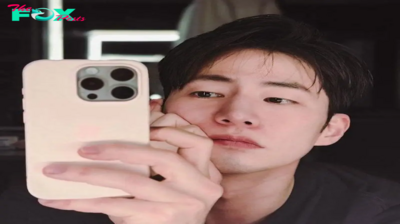
 Entertainment8m ago
Entertainment8m agoRemembering Song Jae-rim: A Look at His Best Movies and K-Drama Performances
-

 Entertainment12h ago
Entertainment12h agoOrange County Choppers Is Ready For Its Big Comeback
-
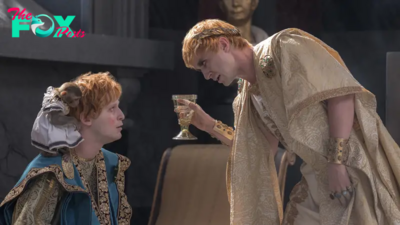
 Entertainment16h ago
Entertainment16h agoThe Real Story of Geta and Caracalla, the Roman Brother Emperors in Gladiator II
-
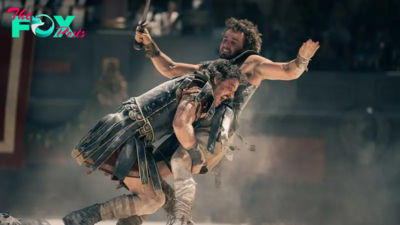
 Entertainment16h ago
Entertainment16h agoWhat Gladiator II Gets Right and Wrong About Real Fights in the Colosseum
-

 Entertainment17h ago
Entertainment17h agoSki Area Officially Opens the Ski Season For New York
-

 Entertainment21h ago
Entertainment21h agoGladiator II Belongs to Denzel
-
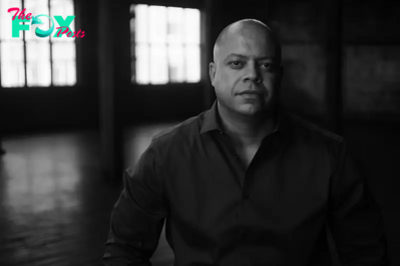
 Entertainment21h ago
Entertainment21h agoJJ Velazquez on Finding Freedom, From Sing Sing to Sing Sing
-

 Entertainment1d ago
Entertainment1d ago13 Most Romantic Movies Based on Novels
